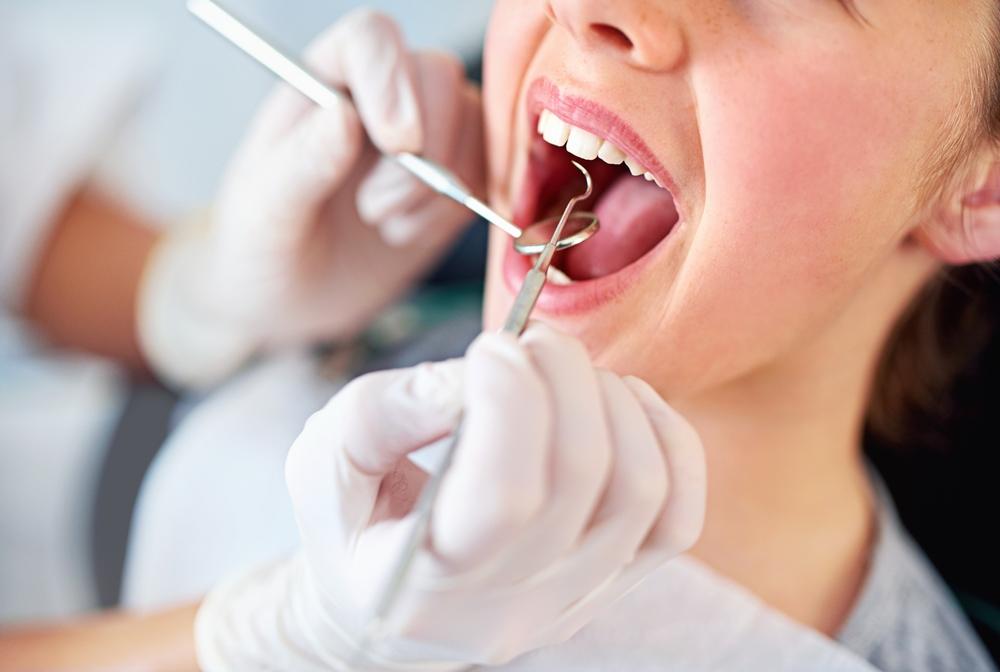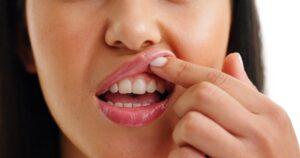Gingivitis is a silent but insidious condition that affects millions of people worldwide. Often dismissed as minor gum irritation, it can escalate into severe gum disease if left unchecked. Our team at Riverside Dental is here to educate you on the early signs and symptoms of gingivitis, its causes, risk factors, and how to manage and prevent it effectively. By the end, you’ll be well-equipped to identify gingivitis before it progresses and know when it’s time to see a dentist.

What Is Gingivitis?
Gingivitis is an early stage of gum disease characterized by inflammation of the gums. It’s primarily caused by plaque buildup on the teeth and gums. This sticky film of bacteria and food particles forms when oral hygiene is neglected. Unlike periodontitis, which affects the bone supporting the teeth, gingivitis is confined to the gums and is reversible with proper care.
It is essential to distinguish between gingivitis and periodontitis. Gingivitis marks the early phase of gum disease, reversible with proper treatment. In contrast, periodontitis presents a more advanced stage, posing a risk of tooth loss if not effectively controlled. Prevention and early intervention are your best defenses against these conditions.
Early Signs of Gingivitis
Red, Swollen Gums
One of the most noticeable early signs of gingivitis is gum inflammation. If your gums appear red and swollen, it’s a sign that your immune system is responding to the presence of harmful bacteria.
Bleeding Gums When Brushing or Flossing
Bleeding gums are a common indication of gingivitis. At the sight of blood on your toothbrush or in the sink post-brushing or flossing, it signals potential gum inflammation needing prompt attention. This holds particularly true if bleeding happens frequently.
Bad Breath
Having bad breath that persists is known as halitosis. This may indicate the presence of gum disease. The bacteria that cause gingivitis produce foul-smelling compounds as they break down food particles and tissues in your mouth.
Tenderness or Discomfort in the Gums
If your gums feel tender or sore to the touch, it could indicate gingivitis. This discomfort is typically due to the inflammation and irritation caused by plaque buildup. Tender gums can make eating and speaking uncomfortable, further highlighting the need for prompt treatment.

Symptoms to Watch For
Persistent Gum Sensitivity
Gum sensitivity that doesn’t go away with regular brushing and flossing could be a sign of gingivitis. Sensitive gums may bleed more easily and feel sore during daily oral care routines. Persistent sensitivity warrants a closer look at your oral hygiene habits and possibly a visit to the dentist.
Changes in Gum Color
Optimal gum health is indicated by a pale pink color. If you notice your gums turning red, darkening, or even becoming bluish, it could be a sign of gingivitis. These color changes are a response to inflammation and the increased flow of blood to the affected area.
Receding Gums
Gum recession is another symptom of gingivitis. When gums begin to pull away from the teeth, it creates pockets where bacteria can accumulate, leading to further inflammation and infection. Receding gums may lead to root exposure, heightening tooth sensitivity and susceptibility to decay.
Increased Plaque Build-up
If you notice a sticky film forming on your teeth despite regular brushing, it could be plaque. Plaque is at the forefront of causes of gingivitis. If it is not removed, it can harden into tartar. Tartar requires professional dental cleaning to be removed, so it’s essential to address plaque buildup early.
Risk Factors for Gingivitis
Poor Oral Hygiene
Neglecting your oral hygiene routine is the most significant risk factor for gingivitis. Infrequent brushing and flossing allow plaque to build up, leading to gum inflammation. Maintaining healthy gums requires the essential practice of brushing at least twice daily and flossing every day.
Smoking or Tobacco Use
Tobacco use, whether smoking or chewing, significantly increases the risk of developing gingivitis. Nicotine and other compounds found in tobacco products diminish blood flow to the gums, hindering their capacity to heal and combat infections. Quitting tobacco use is one of the best steps you can take for your oral and overall health.
Certain Medical Conditions
Medical conditions like diabetes, HIV/AIDS, and cancer treatments can heighten the risk of gingivitis. These conditions compromise the immune system, hampering the body’s ability to combat infections, including gum disease. Effectively managing these fundamental health concerns is vital for upholding optimal oral health.
Nutritional Deficiencies
A diet lacking essential nutrients, particularly vitamin C, can contribute to gingivitis. Vitamin C is necessary for maintaining healthy gum tissue and fighting off infections. Incorporating a balanced diet rich in fruits and vegetables can help support your gum health.
When to See a Dentist
Importance of Early Intervention
Timely intervention is crucial in halting the advancement of gingivitis to more severe stages of gum disease. If you notice any signs or symptoms of gingivitis, don’t wait to seek professional help. Prompt treatment can save you from more extensive and costly dental procedures down the line.
What to Expect During a Dental Visit
During a dental visit, your dentist will perform a thorough examination of your gums and teeth. They may take X-rays to assess the extent of gum disease and check for any underlying issues. After evaluating the findings, they will devise a customized treatment plan to suit your requirements.
Possible Treatments and Procedures
Treatment for gingivitis typically involves professional cleaning to remove plaque and tartar. Your dentist might suggest scaling and root planing, a thorough cleaning procedure that focuses on your teeth roots. For severe instances, surgical treatments could be required to improve gum health.
Schedule an Appointment Today
Gingivitis may seem minor, but ignoring it can lead to serious complications. By understanding the early signs and symptoms, you can take proactive steps to manage and prevent this common gum disease. Remember, good oral hygiene, regular dental visits, and a balanced diet are your best defenses against gingivitis.
If you have concerns about gingivitis and would like to have our team perform an oral examination and cleaning, contact Riverside Dental in Watertown, WI, by calling (920) 262-2176 to schedule an appointment. Your smile deserves the best care!



